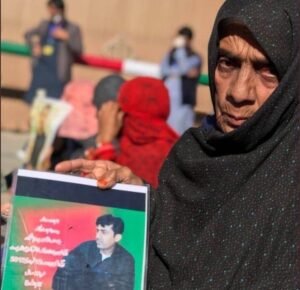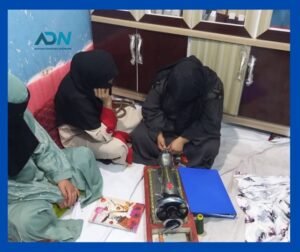China’s Diplomatic Maneuvers: Exploiting Afghanistan’s Resources

By A. Shafaq
As much of the global community shuns Afghanistan’s Taliban regime, China is forging diplomatic and economic tieswith Kabul with the aim to have primary access to the unexplored natural resources in Afghanistan and also use this country as another dumping ground for the excess capacity of goods manufactured in China.
In September last year, China became the first country to appoint a new ambassador to Kabul. Later Chinese Government allowed Taliban government’s envoy to Beijing to present his credentials to Chinese President Xi Jinping, which surprised many. Recently, China joined Russia in abstaining on a U.N. Security Council vote calling for the appointment of a special envoy to Afghanistan, a move which was opposed by the Taliban authorities.
The reason for all this bonhomie is access to Afghanistan’s wealth of untapped mineral resources and as a market for Chinese goods.
Afghanistan, a nation abundant in natural wealth, has emerged as an attractive player for China. With trillions of dollars’ worth of rare earth metals, it has become a coveted territory. These minerals, encompassing lanthanum, cerium, neodymium, and more, are vital components in diverse sectors including electronics, electric vehicles, satellites, and aerospace. Further, the vast resources of minerals such as copper, lithium etc., have significant economic potential for China.
Since last year, Chinese enterprises have intensified their visits to Afghanistan, aiming to explore diverse business opportunities and forge agreements, especially in the mining domain.
In January last year, China’s Xinjiang Central Asia Petroleum and Gas Co (CAPEIC) signed an agreement with the Taliban for oil extraction activities in the Amu Darya basin situated in the northern regions of Afghanistan. The Amu Darya basin, spanning Afghanistan and Tajikistan, is estimated to contain 962 million barrels of crude oil and 52,025 billion cubic feet of natural gas, according to a 2011 assessment by the U.S. Geological Survey. The 25-year contract of Chinese CAPEIC promises investments of $150 million by the first year and a total of $540 million by 2026.
Similarly, in July, the Taliban reported that Fan China Afghan Mining Processing and Trading Company, a Chinese enterprise, has intentions to infuse approximately $350 million into Afghanistan’s economy. This investment is claimed to have been earmarked for diverse sectors such as electricity generation, cement production, and healthcare.
Beyond economic gains, China’s interest in Afghanistan is also with an aim to solidify its influence in the region, reducing the space for Western powers and ensuring unhindered access.
While China’s involvement in Afghanistan may seem beneficial on the surface, there are concerns about the potential exploitation of the country’s resources. China has a track record of engaging in debt-trap diplomacy, luring countries into unsustainable debts that ultimately give China significant leverage and control. Afghanistan could fall victim to this pattern, leading to long-term consequences for its people.
As happened to many countries of Global South, the promised investments from Chinese enterprises in Afghanistan has also remained mostly on paper. CAPEIC has fallen short of their assured investment, putting the blame on inaccurate estimates of material and labor costs, as well as delay in financial approvals.
Leveraging Afghanistan’s resources to foster the well-being of its populace and advance sustainable growth and enduring affluence is imperative. Guarding against their exploitation by authoritarian regimes, akin to past incidents in Africa under the guise of the Belt and Road Initiative, is paramount. Whether the Afghan Taliban can evade the debt trap and steer clear of a fate akin to Pakistan’s loss of sovereignty to China remains a question that only time can answer.
A. Shafaq (pseudonym) is a researcher and lecturer at one of the private universities in Kabul.
Note: The contents of the article are of sole responsibility of the author. Afghan Diaspora Network will not be responsible for any inaccurate or incorrect statement in the articles.










